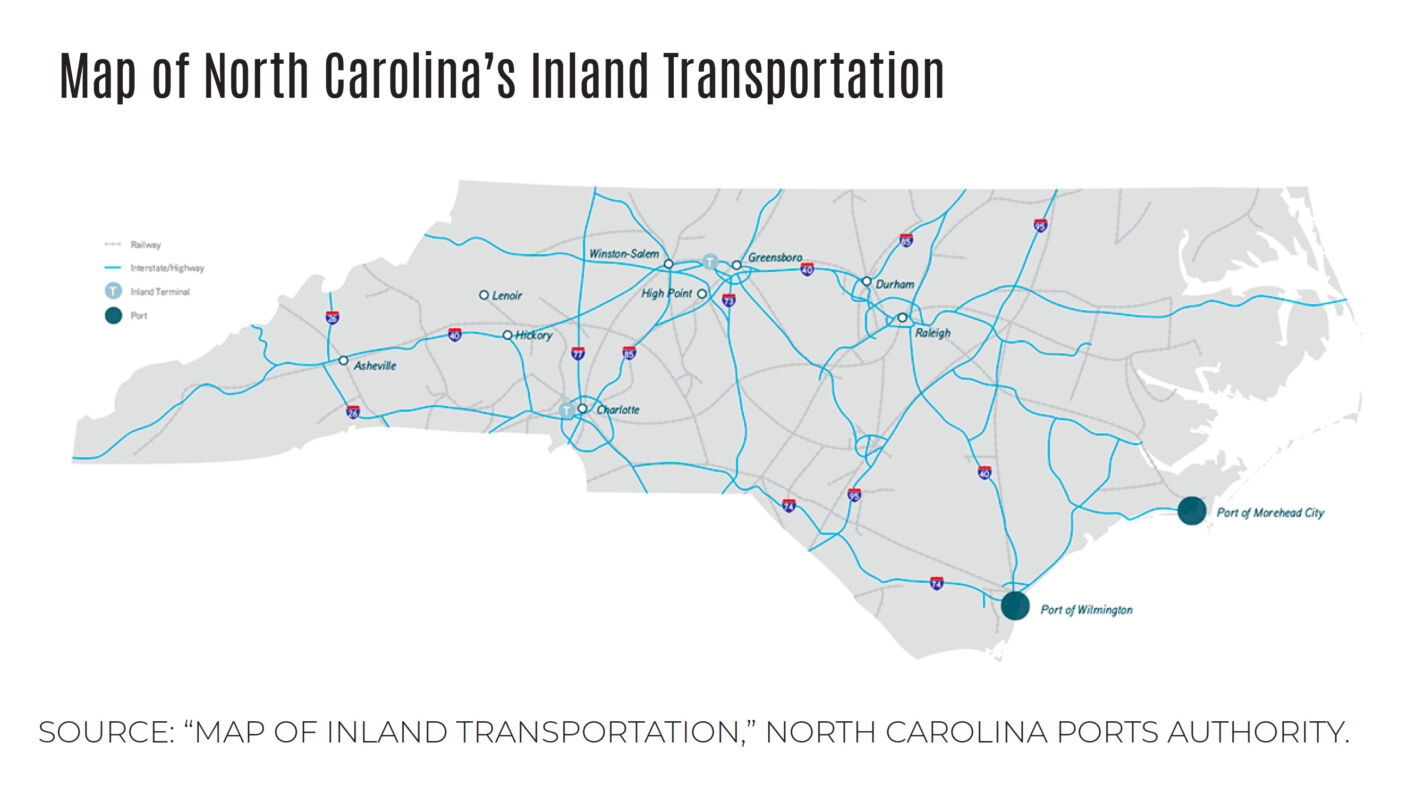November 1, 2023
RALEIGH – The John Locke Foundation presents potential solutions to improve our state’s vital seaports in our latest report, “Gateway to the World: A Report on North Carolina’s Ports.” North Carolina’s maritime ports are seeing all-time record traffic. This increased demand for our ports has exacerbated existing complications and created new challenges. Locke’s brand new report breaks down the crucial role North Carolina’s seaports play in national and international trade, and author Jay Derr proposes solutions to the issues our ports are facing, such as counterproductive regulations, elevated costs, and – most notably – insufficient capacity.
“Capacity expansion is not just about accommodating today’s needs but foreseeing tomorrow’s demands,” said Derr. “The surging vessel dwell times and warehouse capacities underscore policymakers’ need to take action.”
Central to North Carolina’s prosperity is its strategic position on the Eastern Seaboard, manifested prominently through our seaports: the Ports of Wilmington and Morehead City. These ports – the gateway through which American goods flow to the world – have seen a surge in container and bulk-shipping demand. Our report emphasizes the need for a critical review of policies impacting the competitiveness of these ports.

Key highlights from the report include:
- The Importance of North Carolina’s Seaports: Wilmington and Morehead City ports collectively contribute a staggering $16.1 billion to North Carolina’s economic output. The Port of Wilmington notably exports 52% of its goods, surpassing the national average of 41%.
- COVID-19 Resilience: Demonstrating remarkable resilience, both ports have shown growth trends during and after the COVID-19 pandemic, accommodating waterborne traffic diverted from congested West Coast ports.
- Urgent Need for Capacity Expansion: There’s an evident need for capacity enhancement, especially in warehousing. The Port of Wilmington, which previously had adequate capacity, now sees a surge in vessel dwell times, indicating the urgent need for expansion.
- State and Federal Policies Impacting Port Growth: Several policies at both state and federal levels influence the growth trajectory of these ports. Notably, the cost-intensive dredging required for neo-Panamax vessels, federal funding influxes, and North Carolina law stipulations present challenges and opportunities.
- Solutions for Growth and Cost-Reduction: Potential solutions for the challenges facing our ports include public-private partnerships, the re-evaluation of outdated laws affecting port operations, and contracting out select services.
“As the world economy becomes increasingly globalized, our ports are more important than ever,” Derr stated. “Policymakers need to take action.”